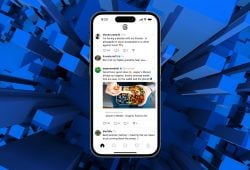The reputational damage is perhaps the most immediate effect of a lawsuit against a brand. This is evident in recent news about the U.S. government suing Walmart for $10 million.
In today’s hyperconnected world, where social media amplifies news within minutes, an accusation can spark viral reactions that erode consumer trust. According to Edelman Trust Barometer, 62 percent of consumers believe that avoiding companies facing ethical or legal issues is an act of social responsibility.
U.S. Government Sues Walmart
The U.S. Consumer Financial Protection Bureau (CFPB) accused Walmart (WMT.N) and workforce payments company Branch Messenger on Monday of forcing over one million delivery drivers to use accounts that cost them more than $10 million in junk fees.
According to international media, the CFPB alleged in its lawsuit that Walmart informed “last-mile” drivers in its Spark Driver program that they would be terminated unless they accepted their wages in Branch accounts opened without their consent.
“Companies cannot force workers to receive their wages through accounts that drain their income with junk fees,” said CFPB Director Rohit Chopra in a press release.
Meanwhile, representatives of Walmart and Branch Messenger denied the CFPB’s allegations, accusing the agency of not giving them enough time to provide explanations and of “rushing” to file the lawsuit.
In a statement, Walmart announced, “We look forward to vigorously defending the company in court, which, unlike the CFPB, respects due process.”
Broader Regulatory Actions
It was also revealed that the CFPB has been engaged in enforcement and regulatory activities in recent days under President Joe Biden’s administration. On Friday, the agency announced a lawsuit against JPMorgan Chase (JPM.N), Bank of America (BAC.N), and Wells Fargo (WFC.N) over their handling of the Zelle payment platform.
The CFPB stated it aims to end the alleged misconduct, return funds to affected consumers, and impose fines that would be paid into the CFPB’s victim relief fund, as announced on Monday.
The lawsuit further alleges that Walmart and Branch misled drivers by claiming they would have instant access to their wages, whereas in reality, they experienced delays or faced fees to transfer their funds elsewhere. It also claims that Branch deceived drivers about its ability to halt payments or execute certain transfers.
Read more:
Limited sales of this Disneyland seasonal product, but smart customers buy it this way
Most dangerous cruises of 2024 due to viral outbreaks, according to CDC
This brand of potato chips is withdrawn from the market due to a “risk of fatal allergies”









